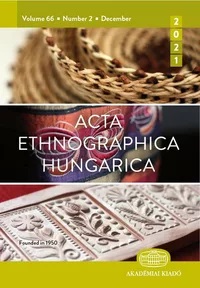Hungarian Legal Ethnography from the Perspective of Theoretical Legal Thought
Hungarian Legal Ethnography from the Perspective of Theoretical Legal Thought
Author(s): Csaba VargaSubject(s): Customs / Folklore
Published by: Akadémiai Kiadó
Keywords: legal anthropology; legal ethnology; legal pluralism; custom; living law
Summary/Abstract: The object of folk law research are the customs that prevail in areas covered, or theoretically covered, by state law, which effectively ensure permanent respect for them, largely in a less formalized way. In the respective historical stratum, (folk) legal customs fulfil functions equivalent to the law where, due to the logic of historical development or for other specific reasons, (a) there is a lack of state and legal organization; (b) the state and legal organization fails to reach significant social groups due to its paucity and indifference; or (c) the law fails to be transformed into practice that would lead to the fulfillment of its true functions. In its present-day version, a legal (folk) custom emerges when the state and legal organization has wholly fulfilled the functions in question, and it survives merely within the framework and vestiges of that organization, as a component of the ongoing system of customs, as a complement and embellishment to the state and legal organization, and perhaps with content of only symbolic significance. Against a background of a living peasant society, this was, and to some extent remains, a peculiarity of Central Europe, while in other contexts, starting from different traditions, the related research comes under the domain of legal anthropology, legal ethnology, and legal pluralism. Legal ethnography contributes to the investigation of social ethnographic issues by examining the instruments and institutions of the social order and the way they function. However, in terms of jurisprudence it is simultaneously both strong and weak, since although the idea of living law has revolutionized legal thought, European legal mentality, which rests on the rule-based objectification of modern formal law, nevertheless seeks to reject both the openness that characterizes the primordial quest for peace and the formlessness familiar to peoples living close to nature. In any case, an ethnography with social-theoretical foundations, which would take into account not only legal anthropology but also the socio-ethnographic lessons of legal ethnography, remains a task for the future.
Journal: Acta Ethnographica Hungarica
- Issue Year: 67/2022
- Issue No: 1
- Page Range: 127-138
- Page Count: 12
- Language: English

